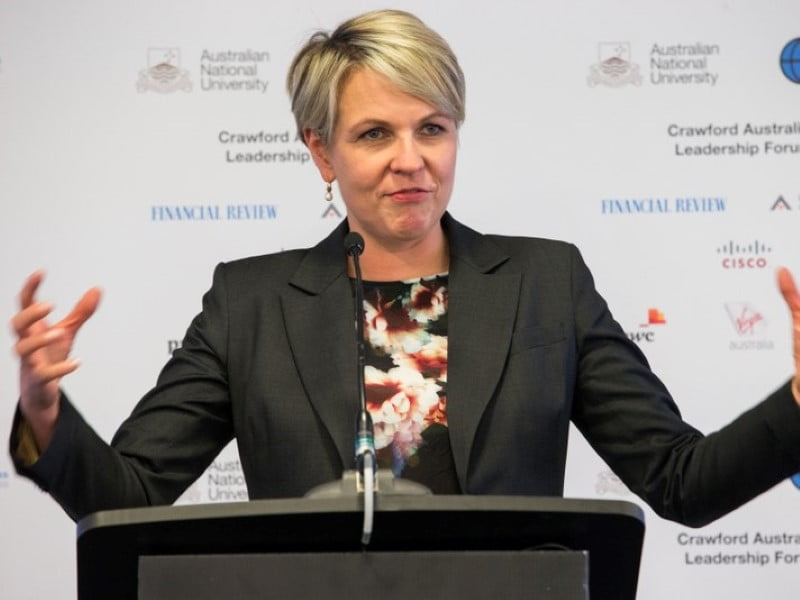A Labor government would establish a universities accord as part of a new commitment to apply the bipartisan approach enjoyed by defence and national security to the higher education sector.
The Opposition flagged more legislated funding for universities beyond election cycles and more affordable access for students as potential parts of the move, but will not detail specific education policies until closer to the election.
Shadow education Minister Tanya Plibersek announced plans for the accord on Monday at the Australian Financial Review’s Higher Education Summit, saying the pandemic had raised “big questions” for the sector about structure and funding.
“The aim of an accord would be to build consensus on key policy questions and national priorities in a sober, evidence-based way, without so much of the political cut and thrust. Building that consensus should help university reform stick,” Ms Plibersek said.
“People are exhausted by politics for politics sake.”

The proposed accord would be led by a minister with advice from a “small group of eminent Australians from across the political spectrum”, and no part of the higher education system will be off limits. It would not apply to earlier parts of the education system.
Ms Plibersek proposed starting the accord with principles of accessibility, affordability, quality, certainty, sustainability, prosperity.
The accord would not limit reasonable criticism and accountability of the sector, Ms Pliberek said, and Labor would not suddenly be supporting the current Coalition government’s “attacks on universities”.
“It means putting our university system on a solid footing,” she said.
“Governments will naturally have differences in emphasis. Governments would still be free to pursue their priorities, and commit to extra support and resources. But an Australian universities accord would ensure that a higher education system with strong base would be a constant.”
Ms Plibersek declined to commit Labor to a demand driven university placement system or increased research funding levels, but pointed to the last Labor government increasing both placements and funding.
A more sustainable higher education system was critical to diversifying Australia’s national economy, Ms Plibersek said, warning “tinkering around the edges” would not be enough for a thriving post-pandemic economy.
“We need world class universities and the research they do to help diversify our economy, to generate new local industries and jobs,” she said.
“All the evidence shows that the more skilled and educated Australia is, the more prosperous it will be.”
The shadow education minister welcomed the push by the federal government to translate research into direct commercial outcomes – something Labor has also offered bipartisan support on – but echoed the sector’s concerns about too short term a focus or it coming at the expense of fundamental research or society and culture studies.
“Of course we want jobs to come from Australian research but that shouldn’t prevent us doing blue sky research and basic research, and allowing people to pursue their own ideas,” Ms Plibersek said.
“We don’t always know how this thing that’s happening today in a laboratory somewhere is going to translate into a new industry or a new innovation, or a new discovery, or a new way of working.”
The federal government has funded a $6 million scoping study of research commercialisation and is offering grants for universities to partner with industry to produce more “job-ready” graduates.
Ms Plibersek said there is a danger this push is more of a “distraction” than effective reform, and could be used to justify cuts in areas like humanities.
“[In humanities] we’re not inventing a thing that you can make in a factory tomorrow, but it adds to the sum of human understanding. A too narrow focus on being able to attach a price ticket value sticker to research, I think, means we miss out on things that are really important to us as a society.”
Do you know more? Contact James Riley via Email.

